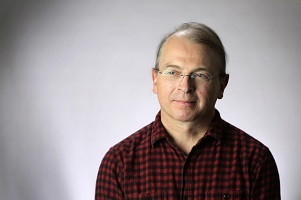- About the Tutorial:
This tutorial introduces fundamental concepts in information theory. Information theory has made considerable impact in complex systems, and has in part co-evolved with complexity science. Research areas ranging from ecology and biology to aerospace and information technology have all seen benefits from the growth of information theory.
In this tutorial, students will follow the development of information theory from bits to modern application in computing and communication. Along the way Seth Lloyd introduces valuable topics in information theory such as mutual information, boolean logic, channel capacity, and the natural relationship between information and entropy.
The tutorial covers a substantial amount of material while limiting discussion of the mathematics involved. When formulas or derivations are considered, the mathematics are described such that less advanced math students will find the tutorial accessible. Prerequisites for this tutorial are an understanding of logarithms, and at least a year of high-school algebra.
- About the Instructor(s):

Seth Lloyd is Professor of Mechanical Engineering at the Massachusetts Institute of Technology (MIT). He received his A.B. from Harvard College in 1982, the Certificate of Advanced Study in Mathematics (Part III) and an M. Phil. in Philosophy of Science from Cambridge University in 1983 and 1984 under a Marshall Fellowship, and a Ph.D. in Physics in 1988 from Rockefeller University under the supervision of Professor Heinz Pagels.
From 1988 to 1991, Professor Lloyd was a postdoctoral fellow in the High Energy Physics Department at the California Institute of Technology, where he worked with Professor Murray Gell-Mann on applications of information to quantum-mechanical systems. From 1991 to 1994, he was a postdoctoral fellow at Los Alamos National Laboratory, where he worked at the Center for Nonlinear Systems on quantum computation. In 1994, he joined the faculty of the Department of Mechanical Engineering at MIT.
- How to use Complexity Explorer:
- How to use Complexity Explorer
- Enrolled students:
-
3,891
- Prerequisites:
-
At least one year of high-school algebra
- Like this tutorial?
- Donate to help fund more like it
- Twitter link
Syllabus
- Introduction
- Forms of Information
- Information and Probability
- Fundamental Formula of Information
- Computation and Logic: Information Processing
- Mutual Information
- Communication Capacity in a Noisy Channel
- Shannon's Coding Theorem
- The Manifold Things Information Measures
- Homework
- Supplementary Materials

